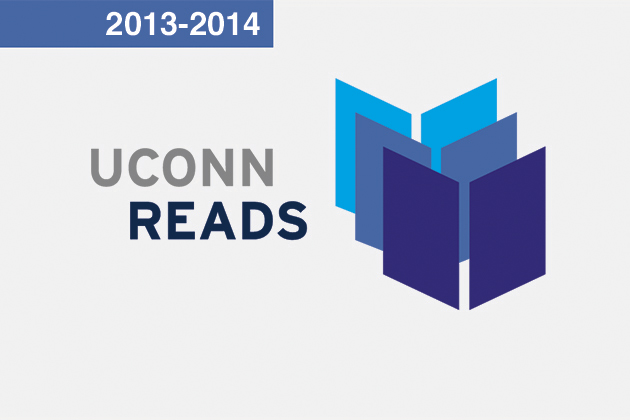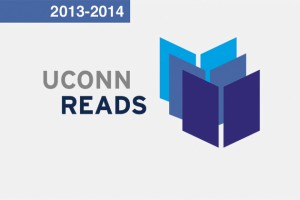The great Indian writer Rabindranath Tagore (1861-1941), winner of the Nobel Prize for Literature, once outlined a vision for world literature: “Nothing except sahitya [union] or literature can establish deeply intimate ties between one person and another, between past and present, between far and near …” He also declared that “we must read history and literature to know humanity … .”
Contemporary Indian fiction is vital and complex, exploring the country’s varied histories and cultures, and the expressive possibilities of its many languages. It’s not surprising that novels by a number of writers from India and its diaspora have been nominated for UConn Reads.
Arundhati Roy’s The God of Small Things (1997) has already been nominated several times. The novel tells the story of fraternal twins Rahu and Estha growing up in their family home in the state of Kerala. It grapples with difficult issues – caste, capitalism, the legacy of colonialism, the nature of familial and romantic love.
The God of Small Things has been a critical and commercial success – it won the Man Booker Prize in 1997 and was on the New York Times bestseller list. Roy drew on her own childhood in Kerala in writing The God of Small Things, as well as her political activism.
She noted in an interview, “I don’t see a great difference between The God of Small Things and my works of nonfiction. As I keep saying, fiction is truth. I think fiction is the truest thing there ever was. My whole effort now is to remove that distinction. The writer is the midwife of understanding. It’s very important for me to tell politics like a story, to make it real, to draw a link between a man with his child and what fruit he had in the village he lived in before he was kicked out, and how that relates to Mr. Wolfensohn at the World Bank …. The God of Small Things is a book where you connect the very smallest things to the very biggest: whether it’s the dent that a baby spider makes on the surface of water or the quality of the moonlight on a river or how history and politics intrude into your life, your house, your bedroom.”
Like The God of Small Things, Kiran Desai’s The Inheritance of Loss (2006) won the Man Booker Prize. Desai’s novel focuses on two main characters: Sai, a girl living with her grandfather, a retired judge, and Biju, son of the grandfather’s cook and an illegal Indian immigrant living in the United States.
Desai has observed, “I couldn’t have written this without having grown up in India, but I also couldn’t have written it without having left India or without the memories of people who had gone to England in previous generations.
“[The book] tries to capture what it means to live between East and West and what it means to be an immigrant. On a deeper level, it explores what happens when a Western element is introduced into a country that is not of the West, which is what happened, of course, during colonial times and is happening again with India’s new relationship with the States.”
Aravind Adiga’s The White Tiger (2008) has also won the Man Booker Prize – as well as two UConn Reads nominations. It addresses class struggle, the caste system, and India’s reinvention of its economy. The White Tiger tells the story of Balram Halwai, a village boy who moves to Delhi and works as a chauffeur for a rich landlord, ultimately becoming a successful entrepreneur himself.
Adiga’s experience as a journalist writing for The Financial Times and Time informs the story. He says his novel is an “attempt to catch the voice of the men you meet as you travel through India – the voice of the colossal underclass … without sentimentality or portraying them as mirthless humorless weaklings as they are usually.”
With an exhibition of Indian art at the Benton Museum in the fall and an exciting influx of new faculty working in the field of Asian Studies, this could be a terrific opportunity for UConn Reads to explore the novels of India.
But, then again, we have to consider the nominations from Africa and Latin America …
To nominate a book, please visit http://uconnreads.uconn.edu







